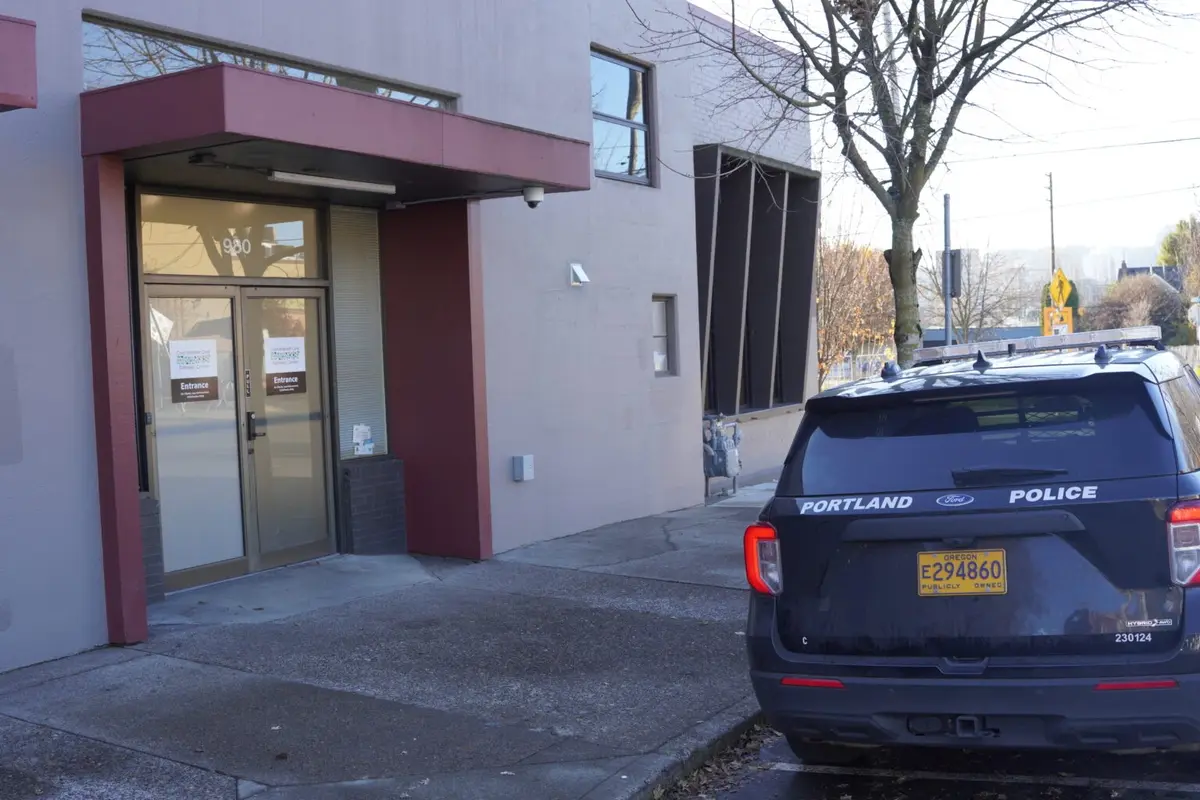
Oregon’s largest county plans to have a 24-hour sobering and crisis stabilization center to help people make their first steps toward recovery from drug addiction.
Multnomah County officials on Thursday announced tentative plans to purchase a building at 1901 S.E. Grand Ave. in Portland that will serve as the center when it opens, likely in late 2026. The facility will also serve as the permanent location for people to enter the county’s deflection program, which allows people to receive recovery services or treatment and avoid misdemeanor drug charges for low-level possession.
The facility will be part of Oregon’s strategy to curb fentanyl drug addiction and overdoses. The center will have up to 50 beds and offer a combination of sobering services over the first 24 hours and withdrawal management. Withdrawal management can last three to seven days while people start to adjust to life without a dependency on addictive drugs.
“This has been a perennial request from our law enforcement partners and the many people across the community who want to see people receive the support that they’re looking for,” Multnomah County Chair Vega Pederson said in a Thursday press conference with county and city leaders.
The center will be key to the county’s deflection program, which is designed to steer drug users into recovery services or treatment. A total of 28 counties have set up deflection programs following passage of House Bill 4002 last year. The bill recriminalized low-level drug possession and gave counties the option to start programs so people can avoid charges in court. The programs, which started in September and later across the state, look differently from county to county.
Lawmakers gave counties flexibility to set their program requirements. In Multnomah County, to successfully finish deflection and avoid charges, a person needs to complete a screening and receive a referral to services. They also need to engage with the recommended services within 30 days. Those can include a variety of services, such as treatment, housing or counseling. If someone does not participate within 30 days, they can be arrested and charged with misdemeanor drug possession.
From September through the end of December, 152 people started the deflection program in Multnomah County, receiving about 300 referrals for different services.
The deflection program has stringent requirements. For example, people with other pending charges cannot participate. However, the new center’s sobering beds can serve people who are not in deflection.
The Portland area has not had a dedicated sobering center since the last one shut down in 2019, well before the fentanyl crisis surged in Oregon.
“This development and the 13 temporary sobering beds that we’ll be bringing online this spring at the Pathway Center signifies our commitment to improve public health and community safety,” Multnomah County Commissioner Julia Brim-Edwards said. “It also represents a tangible step forward in addressing a lack of sobering services and a severe shortage of withdrawal management or detox services in our county.”
Temporary spot
The Coordinated Care Pathway Center opened in October as a temporary spot to provide deflection services.
This spring, the center will open 13 sobering beds while work on the permanent site continues. When the permanent 24-hour center opens, the Coordinated Care Pathway Center will close.
The county contracted with Tuerk House, a Baltimore-based drug and alcohol treatment provider, to run the temporary center, located at 900 S.E. Sandy Boulevard in Portland’s central eastside district.
That’s where Multnomah County police agencies, primarily the Portland Police Bureau, drop people off when they qualify for the program and choose it.
“We need some place to be able to take folks that’s not a jail and not a hospital,” Portland Police Chief Bob Day said. “There will be a lot to work.”
It’s unclear at this stage who will run the permanent site. County officials have not yet selected a contractor to operate the new center.
County officials have not finalized the sale terms of the new building. County officials declined to disclose the tentative price because the negotiations and due diligence are still underway through a purchase and sale agreement. That work includes evaluating the site further and doing outreach to residents and businesses in the area.
Estimated budget
Under the county’s initial budget scope for the center, officials estimated costs of $18.6 million to acquire property, conduct renovations and purchase equipment. That figure can change, though, as can an annual estimate of $10.5 million in personnel and operational costs.
The due diligence review period is 60 days from Jan. 3, when the agreement was reached. That’s followed by another 30 days to close on the property, which is currently the site of a granite and marble business.
This article originally appeared on the Oregon Capital Chronicle.
